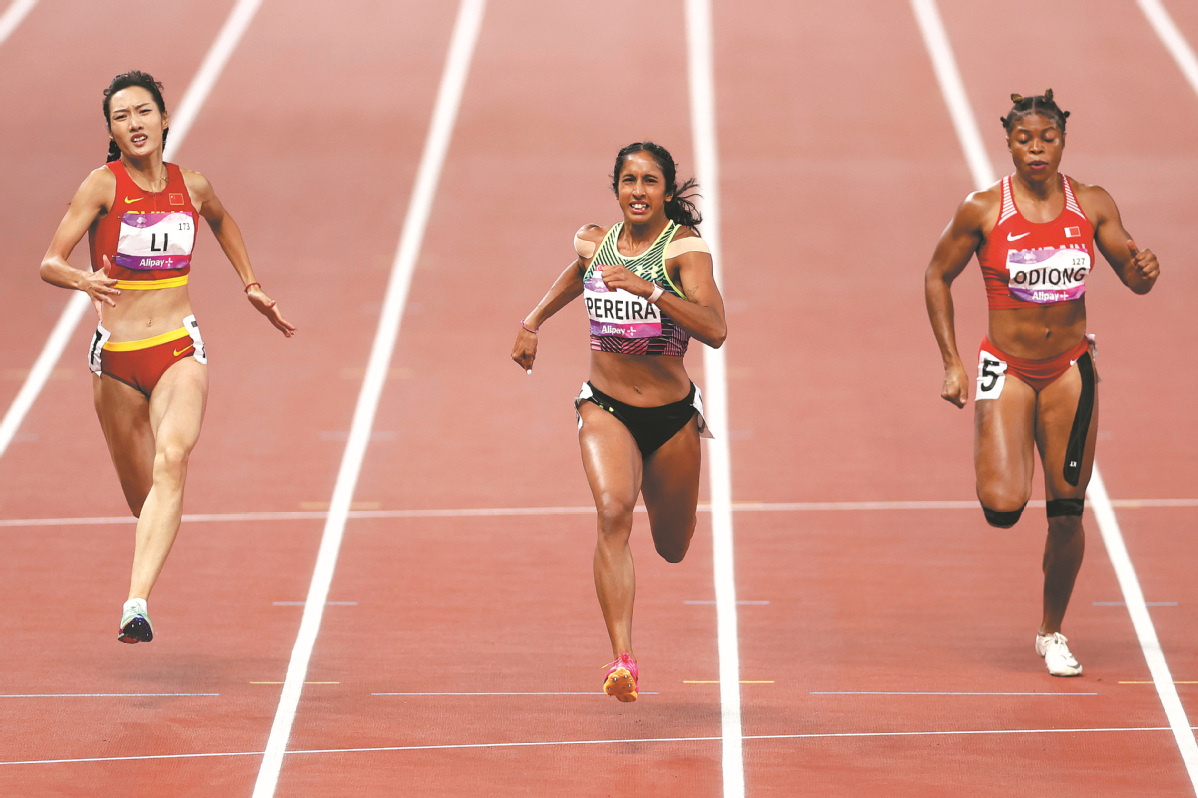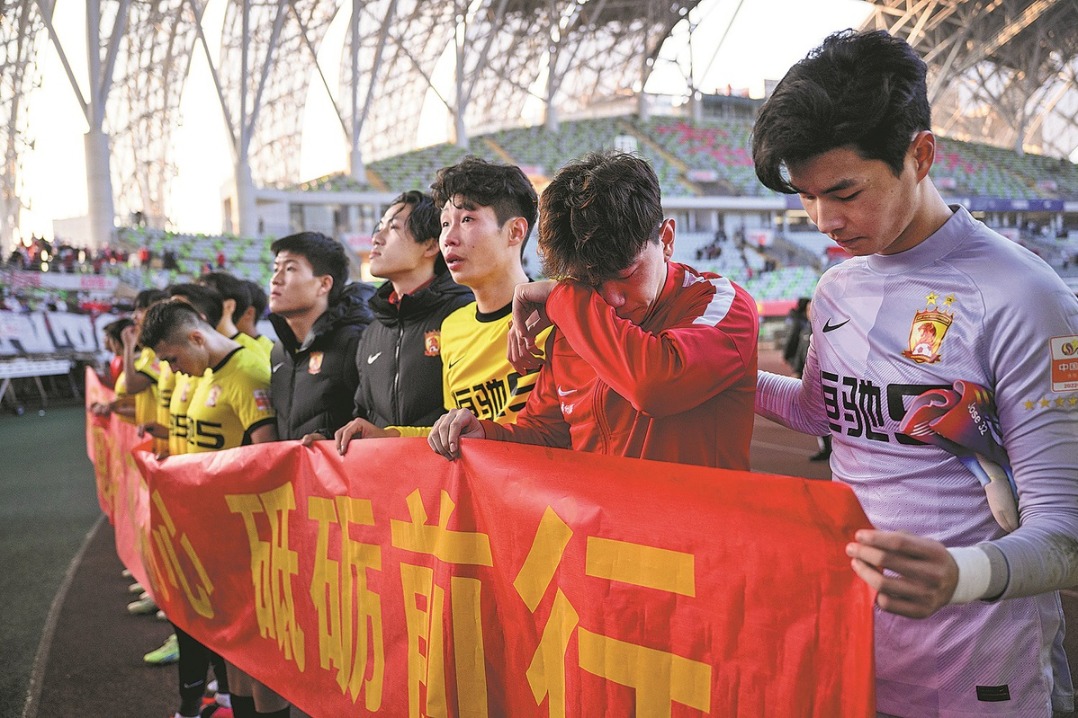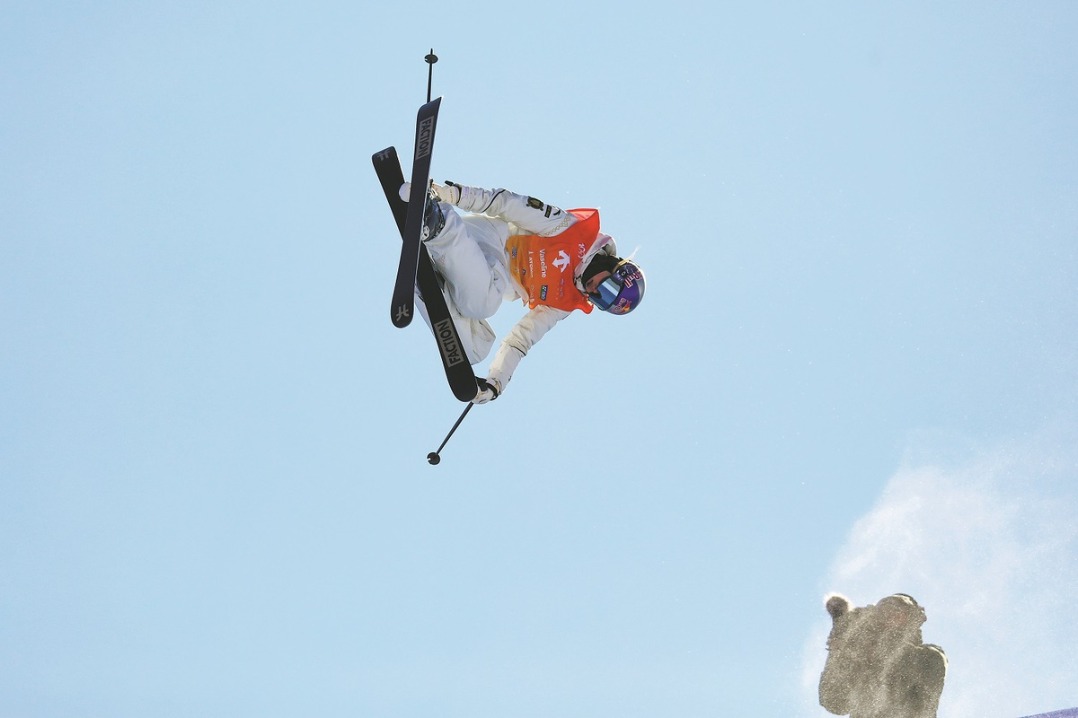Shanti shows the write stuff


Singaporean sprinter, who quit her day job to compete, ends nation's five-decade wait for Asiad athletics gold
Singaporean sprinter Veronica Shanti Pereira quit her job as a copywriter this year to become a full-time athlete.
It proved to be the right decision, as she claimed the women's 200m gold at the Hangzhou Olympic Sports Centre Stadium on Monday, ending Singapore's 49-year wait for an athletics gold medal at the Asiad.
Before her, Swee Lee Chee was the last Singaporean to stand on the top podium at an Asian Games, winning the title in the women's 400m in 1974.
Despite the drama and tension caused by a false start, Pereira has managed to stay focused all the way and clocked 23.03 seconds in the final, crossing ahead of China's Li Yuting (23.28 sec) and defending champion Edidiong Ofonime Odiong of Bahrain (23.48 sec).
"When I was at the blocks, I was just thinking 'execute, execute, execute' for every aspect of my race. When I got off the blocks, I was trying to execute my bend. I do some cuts every now and then, so I was trying to focus on that," said Pereira.
"The thing about the 200m is that there are going to be people in front of you, and I was just focused on taking the curve and coming into the straight as strong as possible. Once I saw I was in the straight, I said 'just go, just go for the finish'," she added.
After the race, when Pereira finally came to understand what had happened, she was overwhelmed by emotion and could hardly hold back her tears.
"I just saw the finish line, I knew I crossed the line first, and I was like 'oh my god, what a season, what a season'. I just saw the finish line, I knew I won. It's been so crazy. It means a lot to me. I can't really describe this. It's been incredible," she said, choking up in her post-race interviews.
"Before the race, I said, 'I'm going to give it everything I've got, because it's my last race of the season. I'm going to make it count'," she added.
This was the 27-year-old's second medal in the continental sporting jamboree. Two days earlier, on Sept 30, she claimed silver in the 100m with a time of 11.27.
"I never expected this (winning both medals). I wanted to do this, I loved doing this, but I never thought it was possible. To be here, it's amazing."
Taking part in the sport since primary school, Pereira first burst onto the scene at the 2015 South East Asian Games in Singapore, where she won the women's 200m. Her older sisters Valerie and Shobi even wrote a children's book called Go Shanti Go! about her time at the Games, which has inspired many kids in the nation.
However, she has endured a challenging journey since, not even making the finals of the women's 100m or 200m at the past two editions of Asian Games, as well as the 2020 Tokyo Olympics.
Now, looking back at her decision to ditch her writing job, she feels no regrets, but is thankful for the experience. She added that she respects her competitors, but has more expectations for the future.
"When I was working and training at the same time, it was a bit difficult to find time for recovery. It was hard to maintain a certain level of quality for all of my sessions, as there are some days when I just can't help being tired.
"Being an athlete is a 24/7, 365-day job, so there are a lot of things that come into play outside of the actual training sessions, like how I'm mentally preparing, my food, my sleep and how I recover," she explained.
"When I had the chance (to make a career switch), I jumped right in. I'm making this a career for as long as possible. I have a lot of respect for everyone out here. We're all on this incredible journey, racing and finding ourselves," she said.
Pereira's historic achievements have won extensive plaudits, especially back home. Both Singapore's Prime Minister Lee Hsien Loong and President Tharman Shanmugaratnam have sent their congratulations via social media.
President Tharman wrote in a Facebook post: "Shanti shows what we can achieve. With personal guts and determination. First class coaches. Strong and patient support from our national bodies. And a population cheering for our sportspeople."































